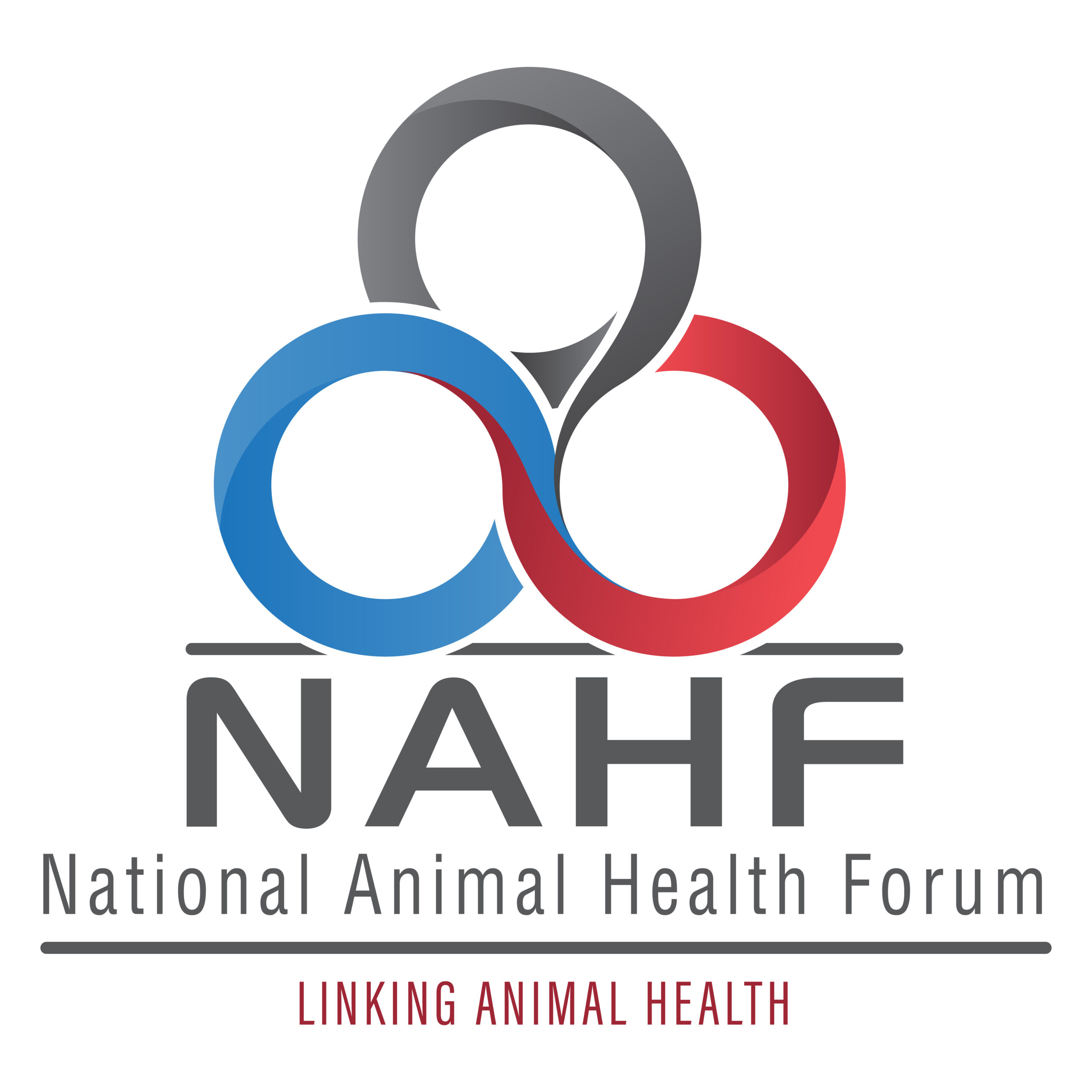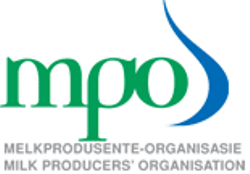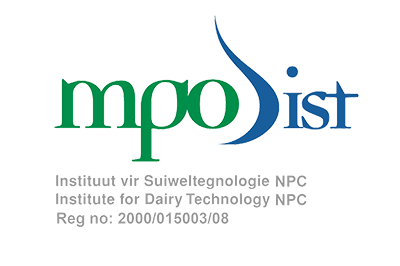SKILLS DEVELOPMENT PROGRAMMES
Training consists of skills development programmes based on AgriSeta unit standards. These programmes for farmworkers are presented on-farm. Combined theory and practice are presented during a five-day period. The farmer or farm manager acts as a mentor after the training programme has been completed to confirm that the outcomes of the training have been reached. Mentoring time depends on the credits for or notional hours devoted to the skills programme. The skills development programmes represent various National Qualifications Framework (NQF) levels (nationally recognised and internationally comparable training standards).
This training is applicable to the dairy, red meat, and feedlot industries.
VIEW PAGES 6–8 OF THE TRAINING PROSPECTUS HERE
DAIRY PRODUCTION
Dairy production, husbandry, and hygiene practices
US 116207, US 116120, US 116110
This skills programme addresses all important aspects of working on a dairy farm and will enable dairy farmworkers to perform effectively.
SKILLS
- Pre-milking, milk-routine, and post-milking procedures
- Cleaning the milking system, the milking parlour, milking equipment, and the bulk tank
- Basic principles of record-keeping, hygiene, as well as the handling and marketing of milk
- Basic principles of care or handling and feeding of calves, heifers, and cows
- The identification of udder diseases
- Maintenance after milking
ARTIFICIAL INSEMINATION
Basic breeding and artificial insemination practices
US 116107, US 116215
Identifying and monitoring breeding behaviour. The pre- and post-partum behaviour of farm animals will contribute to employees operating effectively in an animal production environment, while implementing sustainable and economically viable production principles.
SKILLS
- Breeding principles and practices
- Heat detection
- Normal and abnormal behaviour during the birth process
- Post-partum behaviour
- Basic artificial insemination practices and procedures
ANIMAL HUSBANDRY
Care, observe, and handle animals
US 12587, US 116197
This skills programme addresses all the skills required by a farmworker to apply basic animal husbandry practices. The course involves a lot of practical demonstrations.
SKILLS
- Identifying general symptoms of sick animals
- Knowledge of common diseases
- Record-keeping
- Basic vaccination and immunisation programmes
- Correct procedures for handling vaccines
- Dipping and tick control
- Correct animal handling
- Procedures for restraining and herding animals
- Dehorning and castration
- Marking and identification
- Heat detection
- Feed and water practices and supply
SOCIO-ECONOMIC EMPOWERMENT
Economic systems, agricultural production management systems, work ethics, and personal finance
US 13996, US 13357, US 15092
In order to operate effectively within a free-market agricultural production system, farmworkers need to understand basic economic principles and the concept of work ethics.
SKILLS
- Working effectively within a workplace
- Understanding the free-market economic system and the farmworker’s role in it
- Understanding agricultural production systems and the importance of productivity
- Planning and managing personal finances
OCCUPATIONAL HEALTH AND SAFETY
Apply and utilise health and safety principles in livestock production and processing
US 123172
The dairy industry in South Africa is regulated by various acts, regulations, and guidelines. This skills programme includes the relevant sections of the South African Occupational Health and Safety Act (85 of 1993) that affect workers in the dairy and livestock production environment. Records of this training should be made available to an inspector on request.
SKILLS
- Gaining knowledge of responsibilities of the employer and the employees
- Knowledge of requirements for transport, loading, and equipment safety
- Steps to be taken during emergency situations
- Personal and food hygiene training relevant to the production and handling of milk
- Good dairy farming practices based on the Dairy Standard Agency’s Code of Practice for Milk Producers
FEEDLOT HANDLER – LIVESTOCK HANDLING
Observe and handle animals, inspect animal health, and administer livestock processing treatments
US 116197, US 116643, US 116074
Observe animal health status and apply feedlot-processing treatment programmes to enhance livestock health and quality. Animals must be handled according to best practices that will ensure healthy animals and humane treatment. Sustainable and economically viable production principles need to be implemented in an animal production environment.
SKILLS
- Observing, recording, and reporting on normal and abnormal animal behaviour and physical attributes
- Herding animals in a controlled manner
- Restraining animals in a restraint facility
- Preparing and administering livestock-processing treatments
- Selecting vaccines and pharmaceuticals
- Adhering to animal and human safety precautions
- Applying treatment procedures
- Observing biosecurity principles
FEEDLOT UNIT CONTROLLER 1 – DISEASES AND BIOSECURITY
Prevent and treat animal diseases, determine feedlot mass, and implement animal health biosecurity
US 116219, US 116637, US 116308
The procedures relating to animal health best practices, biosecurity programmes, and record-keeping are essential for feedlot unit controllers to operate effectively in an animal production environment.
SKILLS
- Carrying out animal health procedures and supervising the way animals are restrained for such procedures
- Performing basic veterinary procedures
- Treating and vaccinating animals under supervision
- Implementation of basic principles of biosecurity
- Preparing the weighing facility, determining livestock mass, and restoring the weighing facility to inoperative status
- Supervising animal disease prevention
- Ensuring that the basic clinical examination is done correctly
- Ensuring correct dosage rates, and calibrating and using instruments correctly
FEEDLOT UNIT CONTROLLER 2 – FEEDLOT ENVIRONMENT, FEEDLOT FEED INGREDIENTS AND BLENDS
US 116647, US 116653
Understanding the feedlot operating environment improves the cost-effectiveness of feedlots. Therefore, an understanding of the purchase areas, role players, legislation, and efficiency terminology used is essential. The identification of different feedlot feed ingredients and feedlot blends according to the level of concentration is also important.
SKILLS
- Identifying all the industry role players and structures
- Evaluating livestock purchase regions
- Understanding relevant legislation applicable to the livestock industry
- Applying feedlot production and slaughter norms
- Identifying basic feedlot feed ingredients
- Distinguishing between blended feedlot feeds
- Identifying the quality of blends
- Identifying the basic feedlot feed ingredients
TRACTOR MAINTENANCE
Maintain, repair, and drive a tractor
US 116060, US 116820
Correct maintenance and safety procedures should be applied when operating a tractor. The ability to use science and technology competently and use the correct techniques when operating tractors will contribute to a sustainable and economically viable production environment.
SKILLS
- Driving a tractor
- Conducting daily maintenance on a tractor
- Complying with the legal requirements for operating a tractor
- Recognising operating hazards in the use of a tractor
- Documenting tractor use










